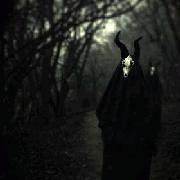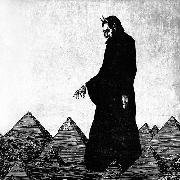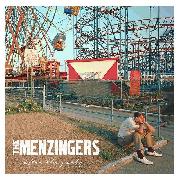|
User
Reviews 123
Approval 95%
Soundoffs 238
News Articles 11
Band Edits + Tags 250
Album Edits 1,484
Album Ratings 0
Last Active 12-23-19 9:27 pm
Joined 09-16-14
Review Comments 22,503
| Unique Film Endings
I promised and I delivered. Back in May I wrote a massive beast on how I differentiate book-to-film adaptations, in which I also promised a list of my favourite endings. Here we are, almost two months later and this Frankenstein's thread is done. I guarantee that at least half of these features are nowhere close to be on your list and I also admit that I could most likely come up with a platoon of other examples of endings and climaxes I prefer to the ones I wrote down here. However, I also do adore, admire or otherwise consider noteworthy each and every of these entries and I will try my best to explain as to why exactly taht might be. It should also be noted that I reference my other film-based thread, that is Film Adaptations Classification Theory. See that for better understanding. If you do find this sort of thinkpiece and theory based examination and analysis of cinematography-based topics as interesting as I do, please let me know if you'd like to see more in the future. Unless, of course, you, just like EphemeralEternity, belive that a music website should nowhere near even attempt at tackling issues and themes not connected to music in any way (which would mean that all of those endless political thread also have no place being here). Either way, for those of you, who do believe so, the albums featured on the list are my own preferences of this year as it stands at the moment, ranked accordingly. SPOILER ALERT should go without saying. Without any more further ado, here's the list: | | 1 |  | IDLES
Brutalism
9) Solaris
This is not as much an ending as it is a simple act of treachery against the viewer, leaving his motionless cadaver to gaze upon the lack of closure. The fact that it all lead to... what exactly? This is not the same hollow feeling items 7) and 6) represent respectively (spoiler alert, I guess), but rather a sort of facing the music that one may never leave the wretched planet Solaris. Did Chris stay? How could he not? That's the only place he'll ever see his wife. But he might have returned too, or is about to and the last scene we see, in which he's hugging his father, surrounded by the planet's glowing surface is simply the planet telling him and us what is going to happen once he returns home, or what he wished would happen. It's a topic for a full thinkpiece and Tarkovsky is a master of those. Each of his films end exactly like that, with a silent thought-provoking ambiguity. And Solaris might just very well be my favourite of them all. | | 2 |  | IDLES
Brutalism
Yeah, this isn't exactly a spot to admire Solaris' ending, but to admire any of Tarkovsky's masterpieces with Solaris as a simple main example. That's why only 9th spot. What can I say? The man knows how to make a film and make it stick with you. | | 3 |  | Dark Model
Saga
8) 2001: A Space Odyssey
Be it my own personal inability to appreciate Stanley Kubrick's no doubt masterful approach to film, or be it his style that hardly resonates with my taste truly is, dare I say, overrated, I fail to really point out one single film from his filmography I would enjoy. With one notable exception. That exception being 2001: A Space Odyssey. Granted, the film did not distance itself plot-wise far from its literary predecessor and even the ending is almost identical. So if nothing has changed, why is this film on the list then? Well, i've read the book much earlier than I laid my eyes on the film and upon my initial reading, although my imagination did succeed picturing the obscurity of Arthur C. Clarke's world, I did have a hard time doing so. The reason this film appealed to me as much as it did is purely its visual component. It is gorgeous. Watching those final moments of glorious and engrossing film was nothing less of an amazing experience. | | 4 |  | Dark Model
Saga
And although this film is in its core a typical Visualisation (see my thread Film Adaptation Classification Theory), it embraces its brand of adaptation as much as it could, giving picture to what one could barely imagine. Kubrick didn't try to give the source material a new meaning, he simply saw it as a visual spectacle and was determined to broadcast it that way. And the ending is as memorable and fantastic as it is purely for its visual beauty that I can't get enough of.
P.S.: One notable difference between the book and film is exactly that meditative feeling. While Kubrick didn't change all that much, he did it all the book did without using a lot of words. Everything is visual and everything is shown, not told. Even though, it is basically an exact recreation of what the book said. Now that I think about it, I should have put this as an example of a good Visualisation in my Film Adaptation Classification Theory thread. Show, don't tell, right? | | 5 |  | White Ward
Futility Report
7) Captain America: First Avenger
There is one particular kind of ending that I love to see. That kind is when the movie has no real ending, or rather a feeling of purposeful incompletion. It's the kind of ending that leaves you hollow, realising that the story is over, but there's still a hole in your heart you need to fill. You don't know what happens now. And that's kind of distressing.
I know how odd it is to see one of the weakest Marvel films on this list. And it is odd for me too, given the fact that I actively dislike this film as well as the majority of Marvel's cinematic offspring. However, I gotta give credit, where the credit's due. In nearly every film they make there is at least one moment or feature that completely makes up for everything else. Be it Zemo's motivation and feeding his own anger with voicemails from his dead wife in otherwise timid Civil War, or be it the whole oddity and the manner of confronting the final boss in Doctor Strange. | | 6 |  | White Ward
Futility Report
But by far my favourite moment of screenwriting redemption is the end of First Avenger. How do most superhero, hell, even regular action/adventure, movies go? A conflict arises, the hero stands up and eventually defeats the baddies and happy end and yadi yadi yada, right? Does that happen in First Avenger? Technically it does. The villain is defeated. But so is the hero. I think what struck me the hardest in this ending is just how hollow it made me feel afterwards. He wakes up and is brutally hit with the realisation that he slept for about 70 years. What follows might be the most haunting words ever said in a Marvel movie: "Are you gonna be okay?" "Yes, I just...I had a date." Knowing that everyone he ever knew, including the woman he loved are most likely dead. One doesn't expect this level of harsh reality to hit in a superhero film, aye? | | 7 |  | The Angelus
There Will Be No Peace
6) 12 Angry Men
But there's also another side to the ending without a real conclusion. As an example of that I could use 12 Angry Men, although surely not the clearest one. Sure, the central story is over. The boy is cleared of murder charges. HOWEVER, what about the other characters. Where do they go? Nowhere really. They go about their day. They spent a couple of hours in one room together...and that's it. You've all of their sides and now they just go away...but what now? The court hearing is over, the jury had their say, and yet, there is something odda bout 12 men laying their souls and their whole personalities on the table, fighting, breaking down, openly dismissing others and reaching out for help and then just leaving, probably never to meet one another again. And this off feeling is what got this film on the list. | | 8 |  | Algiers
The Underside of Power
5) The Wind Rises
This film is not about the Nazis, aight... It's about a frantic dreamer reaching his goal with the help of his imaginary idol, whom he never met, but who keeps the idea of that idol in his heart and that drives him forward...and he happens to work for the Nazis Makes sense that the film will conclude accordingly. Gianni Caproni (Jiro's said idol) once said these faithful words that got stuck in Jiro's head forever: "An engineer only has 10 years to do something great." And that is exactly what we see in this film. 10 years has Jiro worked his ass off to make a perfect plane. So it only makes sense that the very end is Jiro's vivid imagination confronting everything that has happened in his life. And his conscience takes form of none other than Gianni Caproni. The whole scene is really one realisation that all of these hardships and all of the obstacles in his life, Jiro has overcome alone. The real Gianni Caproni probably never heard of Jiro and his achievements. | | 9 |  | Algiers
The Underside of Power
But it's the idea of him being by Jiro's side and the vision of the final goal being imminently reached is what kept Jiro going all of those harsh ten years. So it is no wonder the emotional impact a viewer could have, after this realisation, when Jiro says to his imaginary friend one last "Thank you." and they both descent from a hill out of our view as if to signify that it's all over.
I always prefer Hayao Miyazaki's realistic movies to his more fantasy based ones. This idea of me only being able to connect to the real things will come up later. It is also why my favourite films of Miyazaki's are this one and Grave of the Fireflies. It's because, although all of his films deal with real emotions and problems, no other work is directly set in reality and based around the truth of life as we know it. And that is the real mastery, being able to show magic of the world around you without delving into imaginary creations to much. | | 10 |  | The Afghan Whigs
In Spades
4) (500) Days of Summer
Yeah, I'm one of those fucks, who loved this movie. I'll jerk myself off a little bit right now and tell you a little something about myself. As I mentioned in the Wind Rises feature on this list, I can only connect to the 'real' emotions. In that, the only romcoms or romantic films I manage to actually feel through were the ones without your typical film bullshit. It's all magical and such...no, that doesn't do it for me. Show me the real people, something that could and most likely is happening right now and then we'll talk. That's why I never got into those overly sugary sappy films like the Notebook. Although the story is plausible, there is little to no truthfullness and reality in it. It is simply shown as a gimmick to tear you up as much as it is possible. But it doesn't work for me exactly because of that. On the other hand, 500 Days of Summer is nowhere close to trying to make you tear up. In fact, it's quite the opposite. | | 11 |  | The Afghan Whigs
In Spades
Everything, even the sorrow of a broken relationship is shown in an upbeat way. And that's exactly what makes it so bittersweet. We feel the full misery of a brokenhearted man. When he is down, so are we. It's possibly the realest look at a situation like this there ever was. That situation being, the relationship ends and you don't know why. It's also quite haunting, because had it been shown from the other side (from Summer's perspective) it could have seemed like an episode of New Girl or something.
But we're here to talk about the endings. In this film, the protagonist Tom directs his inner rage and sorrow over what he feels is a betrayal into something that he knows he always wanted to do and something he knows she would appreciate had he done it when they were together. In Tom's case it is architecture. He spends a long time to craft and perfect his skills as means of moving on not only from Summer, but also as a milestone in his life. | | 12 |  | The Afghan Whigs
In Spades
And as a good sign of karma, it all pays out. He makes his peace with Summer and possibly starts a new relationship. One last smile to show us that everything might just be okay after all, giving all brokenhearted fools hope that they too might find their peace if they try hard enough. | | 13 |  | The Menzingers
After the Party
3) The American
Let me first adress the fact that the whole build up and events leading up to this film's climax are at least a little implausible. In that, no hitman agency would let their employee provide a gun for another employee and right before the gun is given over tell him that he is 'out of the game', effectively notifying him that that very gun HE DIDN'T YET DELIVER will be used against him. This little logical hole kept me from fully enjoying this otherwise beautifully constructed sombre film.
As for the climax itself, it was really well crafted. A lot of tension and a lot of final resolutions. Just the way it's supposed to be. HOWEVER, and this is where my admiration for the ending comes, the hero (well, the antihero) does not really make it out alive. Granted, we never find out, but we can also be quite certain that all the bullets he took were fatal. It would normally not be really that big of a deal for a movie not to have a happy end. | | 14 |  | The Menzingers
After the Party
On the contrary, I prefer when a film ends on a lowpoint (like if, say, 500 Days of Summer didn't have the final 'meeting with Autumn' and ended on Tom's endless sorrow, I might like it even more...probably because it would reflect my real life emotions over a broken relationship I was experiencing at the time). So what exactly makes this lack of happy end so special? It's not just that it's already such an un-Hollywoodlike approach to climaxes that is in the play, it is also how everything leading up to this plays out. See, pretty much everything that happens in this film tells us that Jack will and maybe even should not survive. We know what he did wrong it the past, we know what is most likely going to be used against him and who will most likely pull the trigger. The whole plot of this film is basically Jack preparing his own doom. And while watching the film, one might have that idea of this playing out the way it does, but never be quite sure. | | 15 |  | The Menzingers
After the Party
That is, of course, until we are told that that is exactly what is going to happen. Again, had the whole 'telling-him-he'll-die' thing happened differently, I'd like the film ever more. That's this film's biggest flaw. The way we are told how the end is going to turn out is sloppy at the very least. But nevertheless, we are lead to believe that in the ending scenes Jack is supposed to succumb. In fact, we are told that so many times through various hints and other assassination attempts and the long sequences of him crafting the bloody weapon that eventually we as viewers start to think that it is that classic build up for a twist. That the filmmakers are trying to convince us of one thing and eventually serve the exact opposite. We think "Aha, I gotcha, I see what you're trying to do." And mentally, the viewer is already prepared to see the sappy happy end. But that doesn't happen. | | 16 |  | The Menzingers
After the Party
The American is almost fascinating in just how linear and true to itself it is. It serves no surprises and it delivers exactly what it sets up. Even though we are at first lead to believe, with Jack "dodging all of those bullets" and overcoming his enemies, that he might make it out. One other thing that contributes to the expectation of a rather positive outcome is Jack's ever so present romance with Clara. Somehow, she opens up something inside of him nobody and nothing before did. He changes, although not radically that he all of a sudden becomes good or anything. And that also makes the finale so heartwrenching, once you realise that all of their endeavours lead to nothing.
I admit, it's not exactly an ending others might find anywhere close to outstanding, but I, on the other hand, once I started thinking about it and quite possibly finding and connecting the dots that weren't really there, I had to admit that this ending is at the very least unexpected. | | 17 |  | Brutus
Burst
2) Children of Men
And of course I could not leave this list without a good old happy end. And of course my twisted autistic mind would dream up an explanation why possibly one of the most depressing films in recent history should have its finale labeled as a happy one. But do let me explain. In the movie's entirety we are treated to a myriad of apocalyptic and soul-tearing images and events that will hardly leave your heart full of joy. And that kind of attitude and mood remains even after the film's dubious climax. So what is it that makes it so happy in my psychotic view? Well, what's the theme of the film anyway? It's the child and the man, who swore to protect it and its mother. Theo is thrown into this whole mess absolutely helter skelter. He never asked for this. As a matter of fact, he couldn't give two bits of a flying fuck about the youngest remainders of a human race at the beginning of the film. So why is he all of a sudden so protective? | | 18 |  | Brutus
Burst
Most likely, it's his notion to do good. He does that, even though he has a chance to step out. He risks his own life, even tough he knows that one child doesn't save the entire human race. But it is the hope that the child brings and the idea that it might not be unique after all. This brightens up the heart of anyone, including someone as apathetic as Theo. He is the protector of the infant at any cost and he eventually manages to bring it to safety...but he himself does not make it out.
And that is not to indicate that the journey is over. The journey might have just begun, because it was never about Theo. Again, it's the child. Born into the chaos and despair. It should be protected at any cost, because it is the only ray of hope we have. Theo was simply a tool of making that hope real. As I mentioned before, he did what he did, because he was driven by the force of the cause. And the cause is greater than the man. | | 19 |  | Brutus
Burst
And the ending shows us that, in spite of Theo's own finish line, the hope is now in the right hands. We are safe. Humanity is safe. What ending could be happier than that? | | 20 |  | The Magnetic Fields
50 Song Memoir
1) Tinker Tailor Soldier Spy
It's a cheap trick really, to end your movie with "Where are they now" scene. But this one takes it to a whole new level. It is a heartfelt montage showing us one last time the bright and joyous nature of that faithful new year's eve back in the day, when everyone was happy, when everything was alright and the life at the Circus was carefree (well, as carefree as it can get in an intelligence espionage agency). And then we are slapped in the face with the contrast of a bleak and joyless present day, when everyone involved, even in an insignificant way or accidentally, with the whole Witchcraft debacle are torn apart by misery and despair. The harsh reality of betrayal like no one has ever seen before. The fallen empire and all of its pieces looking at you with knowledge that this was probably always bound to happen. | | 21 |  | The Magnetic Fields
50 Song Memoir
The entire film was about these people trying to give their perspective at the already shattered and ungraspable events leading to their departure or fall into ditrust from the Circus and now we see exactly where they are and where they've been. BUT, not all is lost. We are not only shown the distressing and displeasing sight of everyone, who tore the Circus down being at their rock bottom, we are also assured that the ones (Smiley and co.), who were there to sort out the mess caused in their absence are now given the chance to rebuild it.
It's a beautifully bittersweet ending that is only made better by the only song that could play at the background, that is Julio Iglesias' randition of La Mer. I think my adoration of this final montage is not so much in what it represents, but rather how it is shown, that is in a montage with that now iconic song playing in the background. | | 22 |  | The Magnetic Fields
50 Song Memoir
Seriously, take any movie and make the final scenes completely devoid of words and just play this track over it and it will seem dramatic and heartwrenching. It is also interesting how this is the only scene withoug anyone explaining what is going on, and yet it is the only scene that we can understand clearly. We've spent the entirety of the film trying to put the puzzle together piece by piece with each clue being more complex and indecipherable than the ones before. And then all of a sudden, the only scene (or rather a collection of scenes) that we can watch and understand clearly without our brains hurting too much is the one, where nobody says a word. The ending montage is also a nice nod towards the book and it is the only scene that turns this film into a Pure Adaptation, because up to this moment the film was a Reimagination of the book (see Film Adaptations Classification Theory). And the said nod is that the book is much more detailed that the film. | | 23 |  | The Magnetic Fields
50 Song Memoir
Every piece of the puzzle, no matter how unimportant, recieves its own four-page essay. The film, naturally, couldn't have all that. That is why a restructurisation was necessary. The book begins, where the film has its middle point and what the film showed us in its first half, the book revelas through rememberances from various characters Smiley interrogates. But one thing the book does not do is tell you, where do the characters end up (besides the traitor himself). The film, although vaguely, hints towards that. No matter how unfortunate, the old archive lady will forever rot in her home she rents out to some people (if I remember correctly). The agent, who failed because of a woman will remain wondering where and in what state she is. The loyal Smiley's assistant gets to keep his job as a prominent Circus employee. And the man with the plan himself, Smiley, is now the boss. | | 24 |  | The Magnetic Fields
50 Song Memoir
I know, the last one was in the book, but so were many more things shown in the montage, from Prideaux getting his revenge to Ann's return home. See, the ending montage adds more to the story, but also stays true to its literary source. It both contributes and recreates, it enriches and remains loyal. We are shown all we need to know and are given a closure to the story, while still being given a clear sign that this is only the end of this particular story, since each and every character is yet to recieve their completion. And we are shown that in a beautiful and touching way with, I can't praise this track enough, Julio Iglesias' cover of La Mer. Beautiful ending. | | 25 |  | The Magnetic Fields
50 Song Memoir
P.S.: I don't really know where to mention this, but given how many times in the book and the film alike it is spoken of recruitment, one could only wonder what does that look like. How does an agent spot another potential agent? It says in the book that Smiley recruited Esterhase, when the latter was a student in Vienna. How did that come about? Well, I believe one moment between Prideaux and Roach might just reveal a lot. It's the scene in which Prideaux points out Roach's observation skills. Just a thought. | |
Papa Universe
06.26.17 | Just as last time, sorry for going all Cinefix at you.
I will most likely not be able to answer any of your questions or discuss anything with anyone any further right now, as it is almost 3 AM in where I am and tomorrow is a work day. | butcherboy
06.26.17 | amazing fucking list.. properly.. The American is style over substance though.. we can discuss more tomorrow.. | GmemberKills
06.26.17 | needs blair witch project | ScuroFantasma
06.26.17 | Great list again man, what a read. The ending of 2001 was near surreal for me. Whole movie was really. I remember watching 12 Angry Men in highschool, during class in fact, and not really appreciating it at the time, but it's actually a really fantastic movie. Ironically those kinds of dialogue fuelled scenes are one of my favourite things about Tarantino movies nowadays and that movie is basically fuelled by great dialogue and little else. | butcherboy
06.26.17 | Scuro, if you want more dialogue-driven movies, check these flicks based on plays:
Chinese Coffee
The Sunset Limited
My Dinner with Andre
Also, In Bruges, Glengary Glen Ross, Calvary, Doubt and Beautiful Girls are all dialogue-heavy.. | ScuroFantasma
06.26.17 | Sweet, thanks man I will definitley do that. Heard many good things about In Bruges, I'll start there I think. Also if you haven't seen the Community episode based on My Dinner with Andre you should get on that - one of the best examples of television I've seen. Love the show on the whole too so I'm biased a little. | Risodo
06.26.17 | Requiem For A Dream bro, the ending always kills me in so many ways | butcherboy
06.26.17 | hahahha, love Community! still hoping the networks get their shit together and do a movie or at least some webisodes (though without glover, it'll be missing something..) pizza and dice timelines episode will always be my favourite.. | artiswar
06.26.17 | My one and only time dropping acid was with one of my closest long-term internet friends actually with me in the room and we ended up watching 2001 that night which he hadn't seen. I've seen that movie over a dozen times since high-school but watching it on really good lsd was truly something I'll never forget. Nor will I forget the following 3 hours of staring at the inexplicable shapeshifting shadows of potted-plants. | BlazinBlitzer
06.26.17 | The Wind Rises changed the way I thought about movie criticism, especially with the motivations of the main character. I honestly think it's the best Studio Ghibli movie ever made. Yes, I know I'm in the 1%, but I'm cool with that. | ScuroFantasma
06.26.17 | "hahahha, love Community!"
I knew you were a good user (; #sixseasonsandamovie.
God I want that movie. I'm kinda hoping Rick and Morty's success gives Harmon more negotiating room to make it happen. It's a long shot but I'm holding out. | butcherboy
06.26.17 | yea, NBC really fucked them.. you ever watch Bored to Death? not a huge fan of Jason Schwartzman, but the show had such a fantastic vibe going for it. and Ted Danson was amazing in it.. didn't last long either.. | Minushuman24
06.26.17 | Oldboy for sure | ScuroFantasma
06.26.17 | I haven't, no. But I do like Schwartzman, so all the more reason to check it out.
But yeah NBC killed community, it was never the same after they kicked Harmon, even when they brought him back the vibe was changed so much after s4. I still really enjoyed the show the whole way through but s1-3 were untouchable gold that was only sometimes reached in episodes following it. | butcherboy
06.26.17 | yea, I think after all the jerking around, everyone was a bit defeated in later seasons.. you're right, the first three seasons were killer all the way through.. and it came out of nowhere! the guy from the soup had a show suddenly, and it was a great one! haha | brainmelter
06.26.17 | good list and nice read
tbh this ones pre new but I just saw It Comes at Night and the ending made me feel weird and hopeless. and not in the obvious way | ScuroFantasma
06.26.17 | Easily my favourite show, it just feels so natural and engaging, especially early on. I need to binge the whole thing again soon. Also I found a dirt cheap copy of S1 of Bored to Death online, nabbed it so it had better be great butcher (; | butcherboy
06.26.17 | hahahha. I think you're going to love it.. I can dropbox the next season for ya if you do.. | dbizzles
06.26.17 | Fun fact: I've had Strawberry Cough. | dbizzles
06.26.17 | And Bored to Death rules. | Divaman
06.26.17 | The Mist. And the original Night of the Living Dead. | Papa Universe
06.26.17 | Alright, here we go.
@butcherboy:
I see why would you think it is style over substance, but that does not mean that the filmmakers didn't navigate that style well and didn't end up with something worthwhile.
@GmemberKills:
As I mentioned, there's a lot of films that can take place of any one on the list. Blair Witch Project's sudden and abrupt ending is certainly unexpected and it was definitely shocking at the time of its release, however many years later, I begin to feel as if it was not a thought through conclusion, but rather a last minute solution as to how to end the film. It just feels like a spontaneously decided upon way to end the film, even though it did provide for some good thrill.
@ScuroFantasma:
I can't really see what is so ironic on your enjoyment of Tarantino's dialogue. I could add one or two of his flicks on the list, actually.
@Risodo:
Yes that, forgot about that. The ending of Requiem for a Dream is a distressing look at what a complete self-destruction is. It's haunting and definitely sticks in mind long after the film is over. Could have at least given it an honourable mention.
@artiswar:
If you're still into drugs, try watching Jodorowsky's Holy Mountain. (ironic that I recommend a method of enjoying a drug trip right after I discuss how haunting a sight of someone else's drug fuelled life in Requiem for a Dream is)
@BlazinBlitzer:
You're not alone, mate. | Papa Universe
06.26.17 | @Munishuman24:
That too...
@brainmelter:
Man, I haven't seen it yet. But I will soon, hopefully.
@dbizzles:
Cheers.
@Divaman:
I don't really have a lot of thoughts on the original Living Dead film, but as for the Mist, I do admit I enjoyed the twist a lot. It definitely brings a whole new level of misery to the already challenging film. I remember being in awe after seeing it for the first time. As a matter of fact, I could put the Mist instead of the American on the list and keep the same reasoning (that everything leading up to it prepares us for a happy end, but delivers the opposite) and not a lot will change. | ScuroFantasma
06.26.17 | "I can't really see what is so ironic on your enjoyment of Tarantino's dialogue"
Yeah my comment is pretty strange admittedly, also I used the word ironic in its bastardised "that's kinda odd" way which I generally hate doing, but the gist is that at the time of watching 12 Angry Men in highschool I wrote it off and didn't really enjoy it because of all the dialogue and lack of, well, all the other stuff a young teenager generally looks for in a film. But nowadays most of my favourite movies are those with really strong dialogue and they're generally my favorite parts, Tarantino's work containing some great example of that.
In many ways I think Reservoir Dogs and 12 Angry Men are very similar, too. | Papa Universe
06.26.17 | Now I get it. And yeah, the similarities between Reservoir Dogs and 12 Angry Men might be legitimate, given the fact that Tarantino notoriously constructed about first 5 of his films on different recreations and homages to other films he watched in his life. 12 Angry Men might easily be one of them. | ScuroFantasma
06.26.17 | Interesting, I wasn't aware of that, though he's always been very upfront about his influences, even as recently as Django and Hateful Eight. But with RD, it feels kinda like 12 Angry Men in reverse; instead of a fractured jury coming together and ending with a not guilty verdict, it's a tentatively linked group committing a crime together and ending in a mess of violence with literally everyone dying. Also the majority of it is shot in basically one set with little divergence, it's very dialogue driven, there's mystery over a characters "guilt" (the undercover cop) with the group trying to piece the events together, etc. | GhandhiLion
06.26.17 | where the fuck is Fateful Findings :/
https://www.youtube.com/watch?v=dKohD_RLnFw | ZippaThaRippa
06.26.17 | Juat so you knooooooow, the 2001 novel was written during the filming of the movie and published afterwarda. It is NOT in fact the literary predecessor. | Papa Universe
06.26.17 | @ZippaThaRippa:
Holy shit, then that changes everything... | GhandhiLion
06.26.17 | @UniqueUniverse How does it? It doesn't matter if it was published afterwards as it was still written before. | GhandhiLion
06.26.17 | I wouldn't call it an adaptation though. (film) | Papa Universe
06.26.17 | I just looked into it, it was written simultaneously, but both are based on Clarke's story published back in the 40s. What it changes is my view of the film. See, I always believed that Kubrick did not exactly "adapt" the story onto film per se. He just gave it a picture. And no matter, how beautiful the picture, it doesn't change the fact that the story was left intact and there is little-to-no personal interpretation. Effectively, that means that movies as such exist purely for those too lazy to read the book. However, if they were done at the same time, then there is no real attachment, is there? Both the film and the book are a sort of adaptation of that old story from the 40s, even though both follow the same narrative and progression. It suddenly became a sort of unique art installation, in which you can imagine the world you read and then see that world recreated by someone else. Shit, I gotta think about it for a while.
Kudos, ZippaThaRippa, you just broke my worldview. | GhandhiLion
06.26.17 | So the "book" was effectively the script? That makes sense. | Papa Universe
06.26.17 | A novelisation rather | bloc
06.26.17 | Austin Powers in Goldmember | butcherboy
06.26.17 | The Crying Game is infamous for its twist ending, though I don't think that twist carries much water in the modern age..
also, this may be a bit reductionist, but I loved the end of Se7en.. it wrapped up the killer's scheme perfectly.. | Crymsonblaze
06.26.17 | I feel like I always bring this movie up, but it just never gets the attention or credit it deserves.
SUPER, directed by James Gunn, is an incredible twist on the superhero formula. Basically Kickass, except it's good. And, without spoiling anything, it chronicles a truly broken man trying to be a superhero, guided with crazy beliefs and almost certainly a mental disorder.
And the ending is a great one. It's simultaneously happy, melancholic, and utterly cathartic. The last lingering shot is still one that makes me feel those pesky feelings, and it's actually giving me a slight chill as I type this.
It has a 49% RT, which is proof that RT is trash. Don't pay attention to that, and give it a watch. It's pretty moving. | Papa Universe
06.26.17 | When was the last time anyone has ever paid atention to RT or Metacritic? | Crymsonblaze
06.26.17 | Approximately June of 2017, if the Wonder Woman hype is to be believed.
I can't imagine any other reason why people would think that was a good movie. | ScuroFantasma
06.26.17 | Shut up crime.
Super is such a weird movie, I'm still not sure how I feel about it honestly. Unique though (; | Crymsonblaze
06.26.17 | It's definitely weird, and tonally all over the place. That's what I love so much about it though honestly | Papa Universe
06.26.17 | I should have at least mentioned Pulp Fiction or any ending, of which we know exactly where it is headed, although we are not explicitly shown that. Granted, Pulp Fiction does reveal that, but much earlier than its climax. And so on their luckiest and most chill time in the movie, Vince and Jules are heading out of the diner, heads full of thoughts and path towards a certain goal. But we know, where they will end up. You know it and it puts you in a somewhat confusing state, doesn't it? Once you start thinking about it. That nonchalant attitude the duo expresses at the end of that scene simply got to me, because I knew that in about a day or two one of them will be dead. And what do you do when you know the outcome? Pulp Fiction might be the clearest example of this state of feeling. Other examples include often forgotten Hector from 2015, in which the titular character knows he will not make it till next year and lies to his friend that he will be spending next Christmas with his formerly estranged family. And another example is the exact opposite feeling, the joy and happiness. Such as the aforementioned 500 Days of Summer and its meeting Autumn scene at the very end. We are not shown that Tom starts a new relationship, but can be almost certain that this will lead to either similar or much happier endeavours than with Summer. | Faraudo
06.26.17 | Children of Men is a classic, and one of my favorite films. | wwf
06.26.17 | The Holy Grail | Papa Universe
06.26.17 | ^ And of course the Holy Grail. Presumably, you mean the Monty Python absurdist classic, in which case I completely agree. It is an utmost brilliant way of ending a film, typical of Monty Python. They already had a tendency to end thier sketches spontaneously if they had no more idea, one wouldn't think that that unexpected and hilarious method would carry on onto their full length work as well, but it did and it is a doozie. | kris.
06.26.17 | Tinker Tailor is such an underappreciated film. | TalonsOfFire
06.26.17 | Really great list, props for including the first Captain America's ending, by far the best part of the whole movie even though it was solid. Winter Soldier is amazing tho and one of the best action movies ever made.
Children of Men also, might be the best post-apocalypse film ever. | Papa Universe
06.26.17 | @TalonsOfFire: Action-wise, yes, Winter Soldier was solid, but everything else just felt unbelievably empty and tapid to me, from its general plot to its twists. As if it had no actual substance, outside of setting up Civil War. And when your film's primary goal is to serve as a sort of necessity, so that other (much better might I say) film could make sense, that is not the greatest sign. It's basically Marvel's Rogue One. | TalonsOfFire
06.26.17 | The Winter Soldier imo has the best action and storyline (being very topical) of any comic book movie aside from TDK trilogy, and the whole Bucky plot was so good, being pretty emotional at the end. That's just my opinion tho, it's a lot like a Bourne movie more than the other Marvel movies in some ways, and that style appeals to me more than the standard "we're superheroes that learn how to work as a team to stop a villain from shooting a blue laser in the sky" while fighting endless waves of identical aliens/robots that most of the other ones have had. | wwf
06.26.17 | clearly unpopular opinion but I fell asleep twice during The Winter Soldier and it took me three times to get through the first Captain America. I don't normally have a problem getting through movies but something about that series just did notttt click with me | TalonsOfFire
06.26.17 | Most everyone I've talked to online and off agree that the winter soldier is the best marvel movie, and I liked Civil War a lot but it had some issues that prevented it from being as good as it could have been. | butcherboy
06.26.17 | I like Winter Soldier because aside from all the Marvel tropes and bombastic effects, it was a very decent political thriller.. plus you can't beat having Robert Redford in the movie.. | Papa Universe
06.26.17 | That's that redeeming moment/feature in Marvel movies I was talking about in the list. Winter Soldier has Robert Redford. | TalonsOfFire
06.26.17 | I really like the Marvel films and I know they're the way they are for a reason but The Winter Soldier just blew me away. | artiswar
06.26.17 | @ UniqueUniverse
Thanks for the recommend, I'll check it out but sadly I haven't tripped much since then, mostly due to substances being super hard to come by where I live. Hopefully it's a good sober movie as well...
-edit-
yep, just looked it up and judging by the cover art I can already tell it's a good trip movie haha | Papa Universe
06.27.17 | It's basically a drug trip in in of itself. | Papa Universe
06.27.17 | I'm thinking of maybe turning this film discussion into a monthly thing, how about that? | TheSpaceMan
06.27.17 | In regards to 12 angry men, there's also the whole "well then who murdered the boys father" thing. That or did reasonable doubt let him go without consequence? I always found the scene of them all returning to their individual lives to be very comforting | Egarran
06.27.17 | "I fail to really point out one single Kubrick film I would enjoy"
JFC | Papa Universe
06.27.17 | @TheSpaceMan: Yeah, hould have mentioned that.
@Egarran: Well, y'know, opinions, mate. | Egarran
06.27.17 | At least you can enjoy the handiwork.
Anyway, Cabin In The Woods has a fantastic ending. | Papa Universe
06.27.17 | You think? I found it to be a little too over-the-top. I suppose it was intended as ironic for a movie that throughout its runtime mocks all the clichés and tropes of filmmaking ends on an overblown somewhat pretentious note. | Papa Universe
06.27.17 | By the way, these film theory threads will be my new monthly thinkpiece segment, besides the usual monthly roundups. Next time I'll do either one of these: 1) share my own method of practising one's writing; 2) make a list of books (and possibly other media) that might be good for adaptation, also how and why; 3) differences between writing for film and TV both aesthetically and technically; 4) some thinkpiece on studio interference and if it can actually help.
I'll either let someone else choose or wait and see which one looks the most finished by the end of next month. | butcherboy
06.27.17 | 1 or 2 for my vote.. | ScuroFantasma
06.27.17 | 3 would be really cool.
Also Unique, not a fan of The Shining or Full Metal Jacket?
| Egarran
06.28.17 | It is hard to fathom, scuro.
"You think? I found it to be a little too over-the-top."
To put it mildly. It is AMAZING. | Papa Universe
06.28.17 | @ScuroFantasma: Yeah, nah... | Rowan5215
06.28.17 | the last shot of Fire Walk With Me with Cooper and Laura is maybe my favourite shot in the history of cinema | Papa Universe
06.30.17 | Honorable Mention: Be Kind Rewind
Let's just say that this is easily Michel Gondry's weakest film. His typical surrealistic and obscure imagery goes for goofs in this film and while it is surely original, it is also still something that seems rather out of place in Gondry's filmography. However, if this movie did something right (besides the peculiar recreeations of other films), it's the ending. Knowing that there is literally NO possible way for the gang to get out of the financial situation they're in, they decide to make one last film. But a legit one this time. Something nobody has ever done before; say, a documentary about a local Jazz legend. The entire fiming process and the fact that this is the only scene we get as a finale just left me somewhat hollow inside. It's a strange and definitely very Gondry-like was of dealing with the reality that "this is the end". For as cooky as the movie was up to this point, to see it suddenly end on such a heart-wrenchingly bittersweet point is somewhat unexpecterd. It's a beautiful ending showing you the 'one last ride' kind of way to deal with the unavoidable and inescapable problems you can't possibly have a solution for. Just do something you'll be proud of once you're gone. | kris.
06.30.17 | you'd take The Green Hornet over Be Kind Rewind? | Papa Universe
06.30.17 | Oh yeah, he did that too...huh, I guess I just chose to forget...
Guess it ain't a good idea when you don't let Gondry do what he wants. | Papa Universe
07.09.17 | I could also liken the ending of 12 Angry Men to My Dinner with Andre. In fact the entire structure of the two pictures is similar. | butcherboy
07.09.17 | does the ending of the music video for Smack My Bitch Up count? | Papa Universe
07.09.17 | Sure, if you deem it as a short film with one constant uninterrupted soundtrack. |
|
